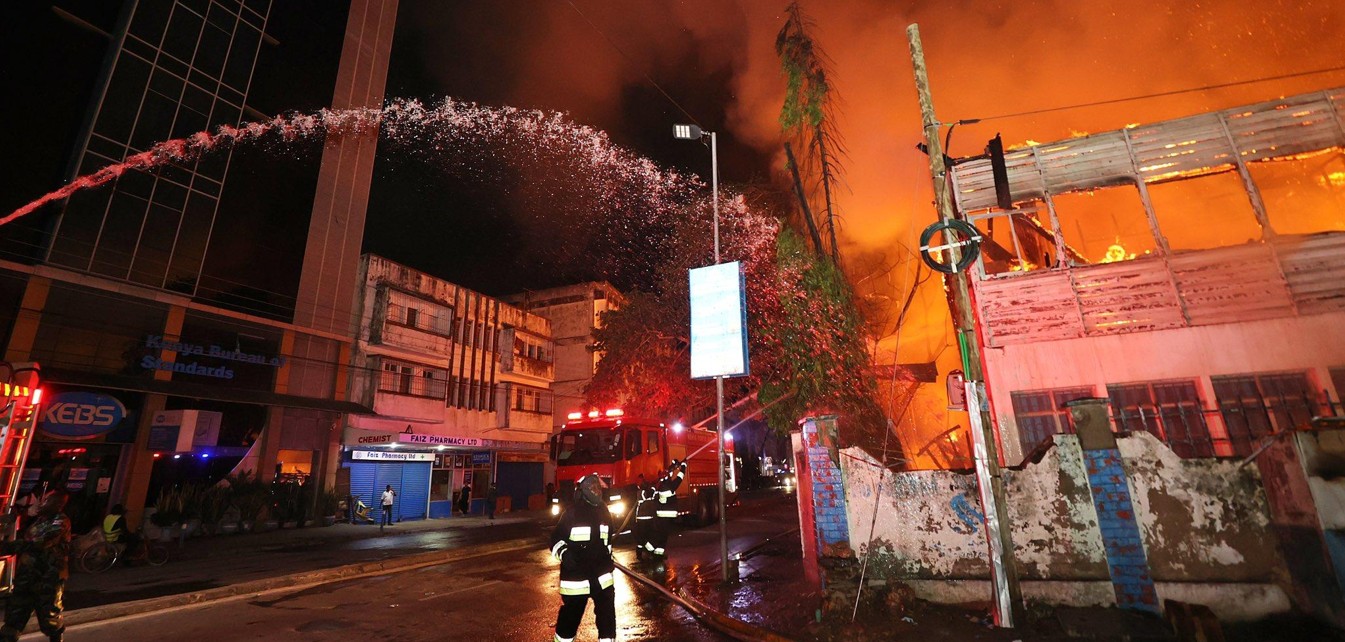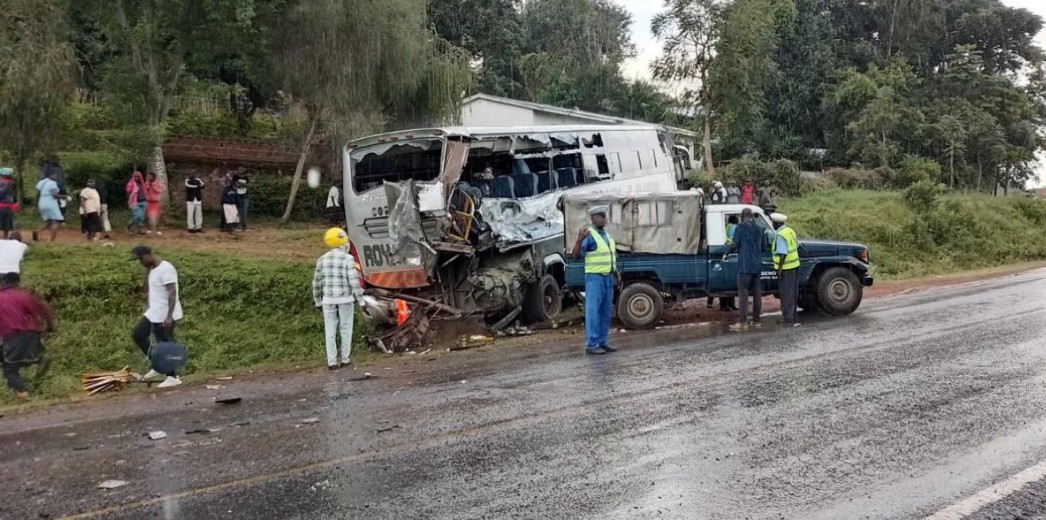Mombasa County rolls out strict fire safety regulations to curb rising incidents

The move follows a spate of fire outbreaks in July and August, which, according to county records, destroyed at least 28 properties and vehicles in just over a month.
The Mombasa County government has unveiled a series of measures to curb frequent fire incidents, pledging stricter enforcement of safety regulations and introducing new compliance requirements for property owners.
The move follows a spate of fire outbreaks in July and August, which, according to county records, destroyed at least 28 properties and vehicles in just over a month.
More To Read
- Mombasa Governor Abdulswamad Nassir shakes up Cabinet in major reshuffle
- Ride for humanity: UK Muslim bikers bring life-changing aid to Kenya’s most underserved regions
- Mombasa taps youth groups to lead waste collection in new clean-up drive
- Mombasa holds public forums after budget criticism for lack of community input
- Mombasa public beaches reopen as county urges vigilance following weather advisory
- Evacuation starts as Mombasa readies for controlled demolition of dangerous building
Officials have blamed the incidents on electrical faults, poor safety standards, and inadequate fire preparedness in both residential and commercial premises.
County authorities said they will strengthen enforcement of existing legal and administrative frameworks while rolling out new strategies to address fire risks. At the centre of the plan is the mandatory issuance and enforcement of “Occupation Certificates” to confirm that buildings comply with applicable safety codes and laws.
Post-construction inspections will be proposed as a new requirement, with periodic renewals for older buildings. Multi-unit residential blocks and informal settlements will also require mandatory fire safety clearance, including checks on fire exits, firefighting equipment, and electrical systems.
Inspection approvals
Property owners carrying out repairs or refurbishments will need inspection approvals for electrical and plumbing works before receiving permits.
The county will also introduce risk-based inspection programmes, prioritising older buildings, densely populated areas, and properties with a history of fire incidents.
Public awareness campaigns will address common household fire hazards such as faulty wiring, overloaded sockets, and unsafe gas cylinder use, while also educating residents on how to report suspected safety violations.
“The CGM will also step up partnerships with the Kenya Navy, National Youth Service, Energy and Petroleum Regulatory Authority (EPRA), Kenya Power, Kenya Pipeline Company, and humanitarian agencies to boost community fire response capacity,” the press release reads.
Fire safety complaints
To improve reporting, the county plans to set up a dedicated channel for fire safety complaints, with an option for anonymous submissions. Landlords or property owners who fail to comply will face heavy penalties, while unsafe buildings could be vacated, repaired, or demolished under the Kenyan Building Code.
In July alone, the county recorded 16 fire incidents—affecting seven residential properties, two commercial premises, two LPG installations, two vehicles, one rubbish fire, and two other categories. August has so far seen 12 similar emergencies.
Ongoing preparedness efforts include acquiring breathing apparatus and firefighting tunics, maintaining four operational fire engines, nearing completion of the Kiembeni Fire Sub-Station to serve Kisauni, repairing all fire stations, drilling a borehole at Changamwe, and conducting fire drills in both public and private institutions.
County officials have urged residents to prioritise safety in the event of a fire—alert others, use escape plans, stay low in smoke, and call the fire department immediately.
Top Stories Today










































